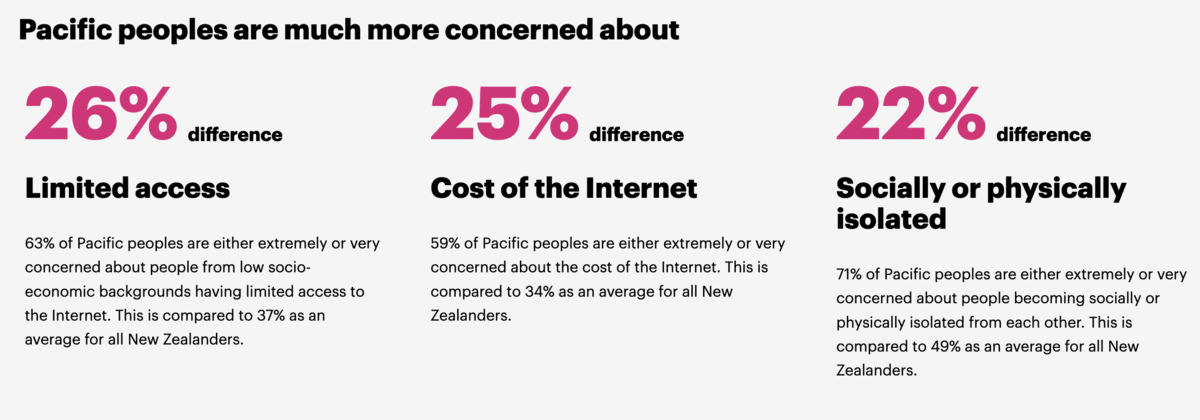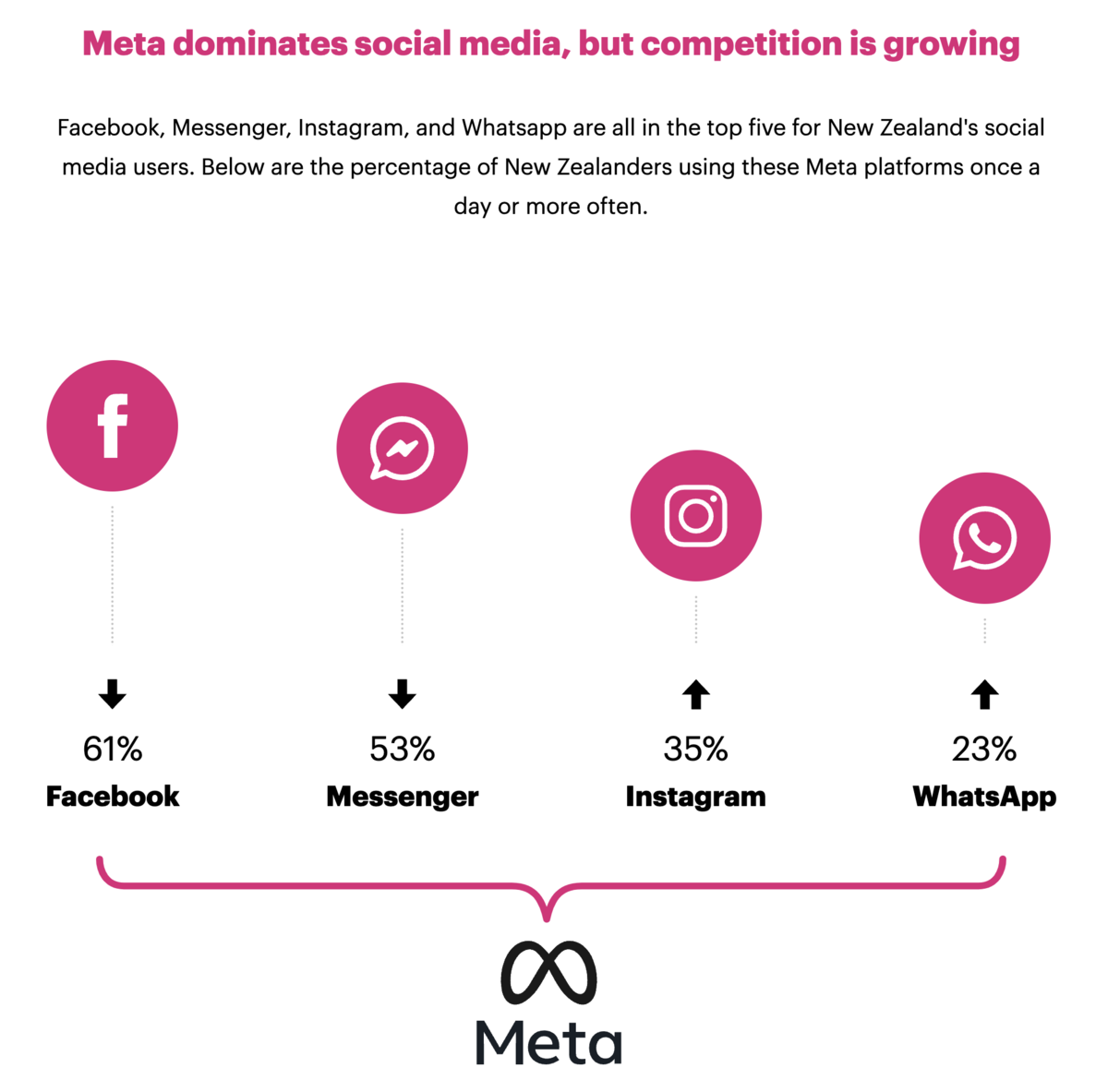The internet in 2023: We are highly connected, but significant disparities remain
As a nation we are more immersed in the online world than eve and overwhelmingly see the internet as a force for good.
But as InternetNZ’s latest Internet Insights Report reveals, our views on the internet and even our ability to access it, are shaped by a range of social, physical and demographic factors. For many New Zealanders, barriers to access and the prospect of encountering bully or other abuse online are considered a far bigger issue than for the population as a whole.
For instance, 63% of Pacific Peoples surveyed by InternetNZ are either “extremely or very concerned” about people from low socio-economic backgrounds having limited access to the Internet. This is compared to 37% on average for all New Zealanders.

Source: InternetNZ
There’s also a yawning gap between Pacific Peoples when it comes to concerns over the cost of accessing the internet and the risk of people from the Pasifika community becoming socially isolated from each other - relatively few Kiwis see these as major issues in comparison.
The disparities extend to gender. Women are significantly more concerned about young people accessing inappropriate content on the internet, the risk of being cyberbullied, and the spread of extremist material and hate speech online.
The research also shines a light on the lingering disparities the disabled face when it comes to internet access. While 52% of people with disabilities are either extremely or very concerned about poor internet access in remote areas, only 44% of the population overall share their concern.
Yes, New Zealand still has a digital divide that requires dedicated programmes to overcome issues as fundamental as families having appropriate devices and data connections to access the internet. But the research also reveals just how entrenched internet connectivity is in our lives.
The online survey of 1,001 undertaken by Kantar Public's and Colmar Brunton's online consumer panels, shows that 95% of New Zealanders use the internet at least once a day, and 99% use it at least once a week. Fibre broadband connects 64% of those surveyed, compared to 45% in 2018. Those without fibre, which now passes over 85% of households nationwide, are more likely to live in the North Island, have a household income of below $50,000 and have a long-term disability or impairment.
When it comes to social media, an integral component of engaging with other people online, one company, Meta, dominates our interactions, though usage of Facebook and Messenger is declining and TikTok is the fastest-growing social media platform in New Zealand, doubling its daily users in just two years, with 14% of the population now using the video sharing platform at least once a day.

Source: InternetNZ
Finally, the research identifies the huge shift towards remote and hybrid working spurred by the Covid-19 pandemic, with 53% of New Zealanders who can work from home saying they would consider relocating in New Zealand if they could take their job with them.
Overall, 84% of New Zealanders have positive sentiments towards the internet, down slightly from 87% in 2020. The internet continues to offer huge utility for connecting us to each other, to information and essential services in the modern world. But there’s still work to do to tackle the digital divide that continues to leave many disconnected or more likely to have a bad experience online.
